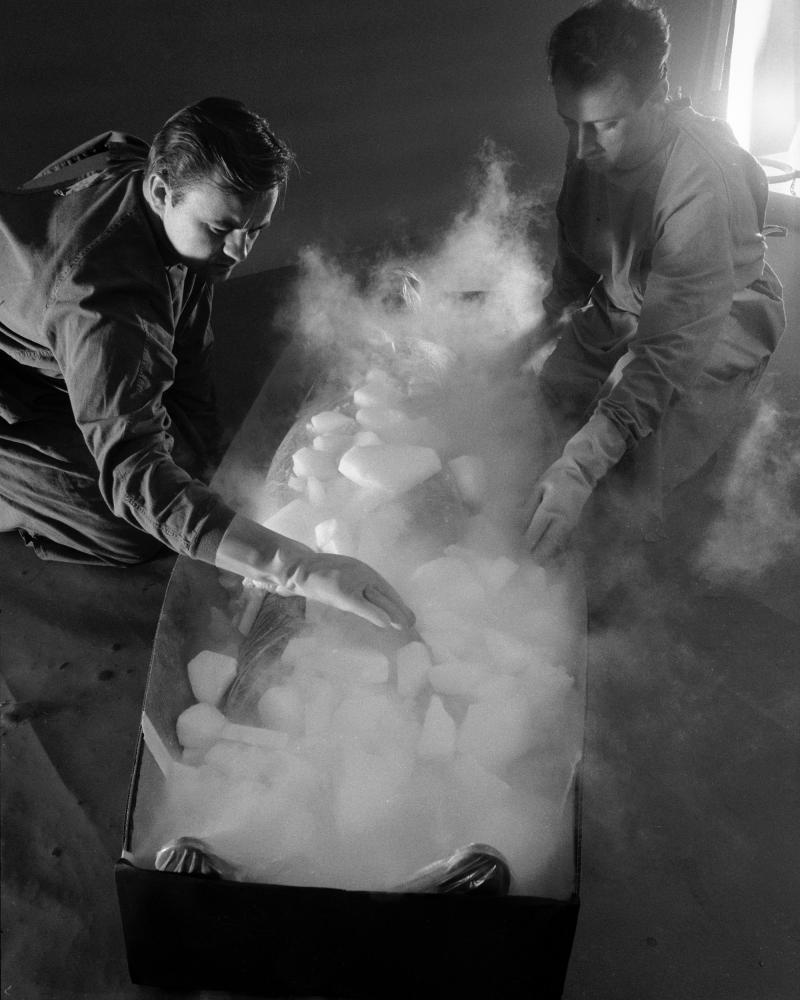The World’s First Cryogenically Preserved Man Has Waited 55 Years For A Cure

Bob Nelson, left, the president of the Cryonics Society of California, and Dr. Dante Brunola, a physician and biophysicist, demonstrate the cryogenic freezing process in 1967.
J. R. Eyerman/The LIFE Picture Collection/Getty Images
As the first man to be cryogenically frozen, James Bedford may wait, preserved in liquid nitrogen, for a cure to the terminal cancer that he died from in 1967, SF Gate reports.
Last Wednesday, January 15, marks the 55th anniversary of his freezing.
After earning a master’s in teaching at UC Berkeley, he focused on alleviating young people’s fears and uncertainties of the future through his focus on vocational training and career development in teaching at a high school in Escalon and in publishing books on the topics.
Bedford was also a globetrotter, who traveled to Africa, South America, and Europe.
After learning he had cancer, SF Gate reported, he reached out to the Cryonics Society of California, whose president told him they would be able to extend his life.
Upon his death, the Cryonics Society’s doctors had seven minutes to put him on artificial respiration, keeping the oxygen flowing to his brain while his veins were pumped with dimethyl sulfoxide, replacing his blood and protecting his organs from freezing.
Robert Nelson, the president of the Cryonics Society, was characterized by media at the time as a television repairman with no formal science background.
“I called up and said, ‘I have a problem and I need your help.’ Sandra [Stanley] said, ‘What?’ I said, ‘I have this frozen guy and no place to put him and it’s going to be two or three weeks,’” Nelson recalled to All That’s Interesting.
Bedford volunteered to be frozen, and his death caught the society off guard — cryonics was an especially fringe field at the time, and no one had done it before.
“Cryonics was still just a theory, and the proceedings had the slightly manic quality of a local theater production, forced to open a couple of weeks early,” Smithsonian Magazine reported.
The capsule Bedford rested in has to be transported between several facilities, between a warehouse in Anahein, a cryonics facility in Emeryville, Fullerton, among other places, and included a U-Haul trip by Bedford’s son, Norman, until cryonics company Alcor took in his body in 1991.
“I would like to think that my actions have been important in getting you to the tomorrow that you (and we) so hope for. History will be the judge of that,” Alcor employee Mike Darwin wrote in a 1991 open letter he’d hoped Bedford would see one day.



